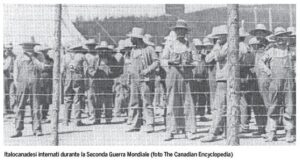Bigotry, racism and “heterophobia” at City Council

[avatar user=”volpej” size=”thumbnail” /]
[GTranslate]TORONTO – In the end, from a personal perspective, one is left only with one’s good name – a reputation. Corporately, a legacy against which the public can measure value to societal standards. Both are built incrementally by sweat and tears. The ride is not always smooth.
The Corriere Canadese, in one form or another, has been in the service of the Italian Canadian community since 1954. Its purpose, from my point of view, has always been to integrate immigrant value structures into those newer ones that individual newcomers and their families were creating, in the course of their interaction with other disparate immigrant groups.
It has sought to examine institutions, explain how they [are supposed to] work, critique them and the process, criticize egregious deviations from the acceptable norm and/or promote democratic activity to bring about change.
And, yes, to put under the lens sacred cows like Political entities, the Church and the School System … and “ movements”. Public actors on that stage are as the saying goes, fair game.
It may be helpful to recall that when Corriere Canadese came on the scene in 1954. Canada was a mere 87 years old – it was “born” in 1867. The Italian community had been a part of that existence in massive numbers since at least the early 1880s.
While this was particularly true in “large centres” such as Montreal, Toronto and Vancouver, Italians had put down roots in smaller places like Trail B.C., Thunder Bay, Ont., and Sydney, Nova Scotia, to name but a few. But they were not the only immigrant groups.
For some of them, their religious aliation and the leadership of their “priesthood” were all they had as a guide to navigating through the challenges the New World threw at them. Luckily – for some (the Catholics) – the Constitution, for some very pragmatic reasons, had given them, as a religious group, an embedded right to educate their children in conformity with precepts and principles which they could understand and for which there was a qualified “clergy” to steer and guide.
It was the Law of the land. All other laws are inferior to it. Alas, democracy, citizenship and the “freedoms” that come with it can disappear overnight; if we allow those in power to abuse, they do abuse. In 1940, under cover of a War Measures Act, Canadian citizens and permanent residents with an Italian origin – among others – were labelled “enemy aliens”: jobs lost, properties confiscated, men interned by the hundreds, families and individuals stigmatized by the thousands for their ethnicity. No apologies. No compensations.
Fast forward to today. Those religious “guarantees” so vital to our identity and our dignity are now under attack by those who depict Catholicism as “homophobic and transphobic” and any other unfounded smear that comes to mind.
Except that there is “an inconvenient Law” that defines rights and freedoms: the British North America Act, the Education Act and, wait for it, the Human Rights Code. The Toronto City Councillor who so zealously advocates for herself “on the public dime” might want to check her facts In this regard before she launches in tirades that we consider libellous.


